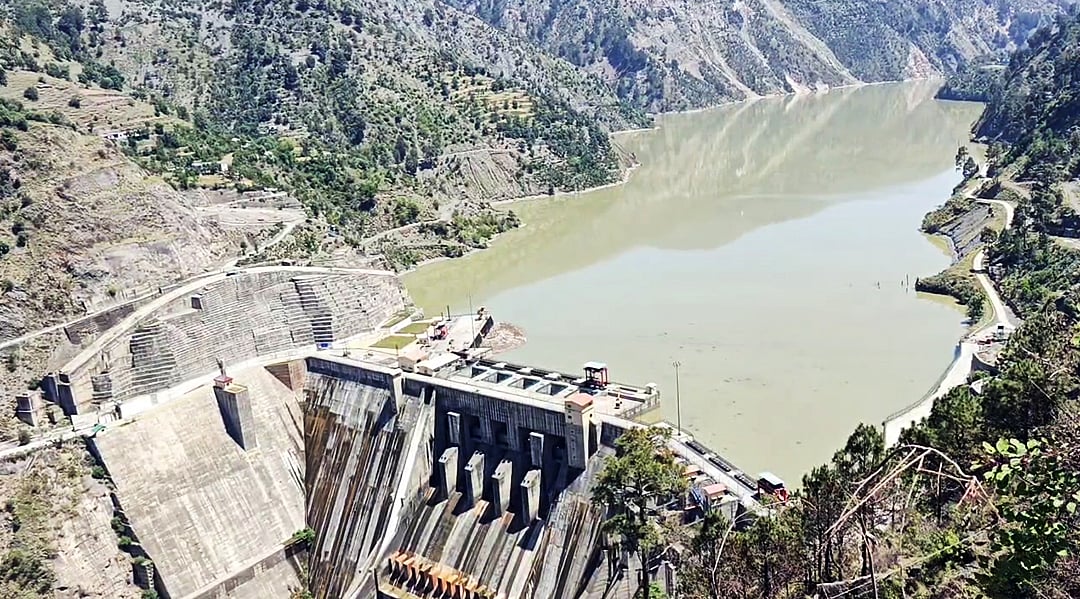India Initiates Dam Operations & Accelerates 6 Hydropower Projects Following Indus Waters Treaty Suspension | (Photo Courtesy: ANI)
In the wake of suspending the Indus Waters Treaty (IWT) with Pakistan, India has commenced significant hydroelectric activities in Jammu and Kashmir.
The National Hydroelectric Power Corporation (NHPC) has undertaken ‘reservoir flushing,’ the removal of sediment buildup, at the Salal and Baglihar dams on the Chenab River. This maintenance, previously restricted under the IWT, aims to enhance power generation efficiency and prevent turbine damage.
Resuming and Accelerating Hydropower Projects
Beyond maintenance, India is expediting the construction of six previously stalled hydroelectric projects in the region. These include the 1,856 MW Sawalkot project, the Kirthai I and II facilities with a combined capacity of 1,320 MW, and the 1,000 MW Pakal Dul project. Collectively, these initiatives are projected to increase Jammu and Kashmir’s hydroelectric capacity to over 10,000 MW, bolstering power supply and water availability for irrigation and domestic use.
The suspension of the IWT removes the obligation for India to provide Pakistan with a six-month notice before commencing such projects, a requirement that previously allowed for potential legal challenges and delays from Islamabad.
Strategic Implications and Regional Tensions
India’s actions follow the April 22 terror attack in Pahalgam, which resulted in the deaths of 26 individuals, predominantly Hindu tourists. Attributing the attack to Pakistan-based entities, India suspended the IWT on April 24, marking a significant shift in bilateral relations.
Pakistan has expressed strong opposition to India’s unilateral decisions, labeling the suspension of the treaty as an “act of war” and threatening legal action if river flows are obstructed. The Indus Waters Treaty, established in 1960, has been a cornerstone of India-Pakistan relations, surviving multiple conflicts.
Its suspension raises concerns over regional stability, especially considering Pakistan’s heavy reliance on the Indus River system for agriculture and hydropower.
